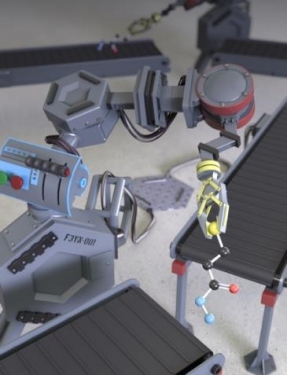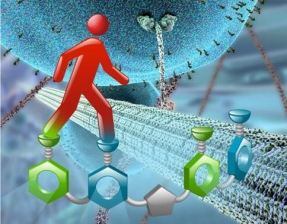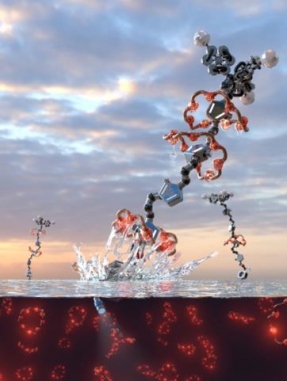In recent years, some of the first examples of synthetic molecular level machines and motors—all be they primitive by biological standards—have been developed.2 These molecules are often best designed to work through statistical mechanisms, rectifying random thermal motion through ratchet mechanisms3-7 in a manner reminiscent of Maxwell’s Demon3. The first programmable systems have been introduced,8,9 the forerunners of a new technological era of molecular robotics.
Perhaps the best way to appreciate the technological potential of controlled molecular-level motion is to recognise that nanomotors and molecular-level machines lie at the heart of every significant biological process. Over billions of years of evolution Nature has not repeatedly chosen this solution for achieving complex task performance without good reason. In stark contrast to biology, none of mankind’s fantastic myriad of present day technologies exploit controlled molecular-level motion in any way at all: every catalyst, every material, every plastic, every pharmaceutical, every chemical reagent, all function exclusively through their static or equilibrium dynamic properties. When we learn how to build artificial structures that can control and exploit molecular level motion, and interface their effects directly with other molecular-level substructures and the outside world, it will potentially impact on every aspect of functional molecule and materials design. An improved understanding of physics and biology will surely follow.



For a musical introduction, see ‘Nanobot’: https://bit.ly/2M5Zwdl
[1] The Nobel Prize in Chemistry 2016–Advanced Information. Nobelprize.org. Nobel Media AB 2014. Web. 6 Oct, 2016, http://www.nobelprize.org/nobel_prizes/chemistry/laureates/2016/advanced.... [2] "Rise of the molecular machines", Angew. Chem. Int. Ed. 54, 10080 (2015). [3] "A molecular information ratchet", Nature 445, 523 (2007). [4] "An autonomous chemically fuelled small-molecule motor", Nature 534, 235 (2016). [5] "Rotary and linear molecular motors driven by pulses of a chemical fuel", Science 358, 340 (2017). [6] "A catalysis-driven artificial molecular pump", Nature 594, 529 (2021). [7] "Autonomous fuelled directional rotation about a covalent single bond", Nature 604, 80 (2022). [8] "Sequence-specific peptide synthesis by an artificial small-molecule machine", Science 339, 189 (2013). [9] "Stereodivergent synthesis with a programmable molecular machine", Nature 549, 374 (2017).
